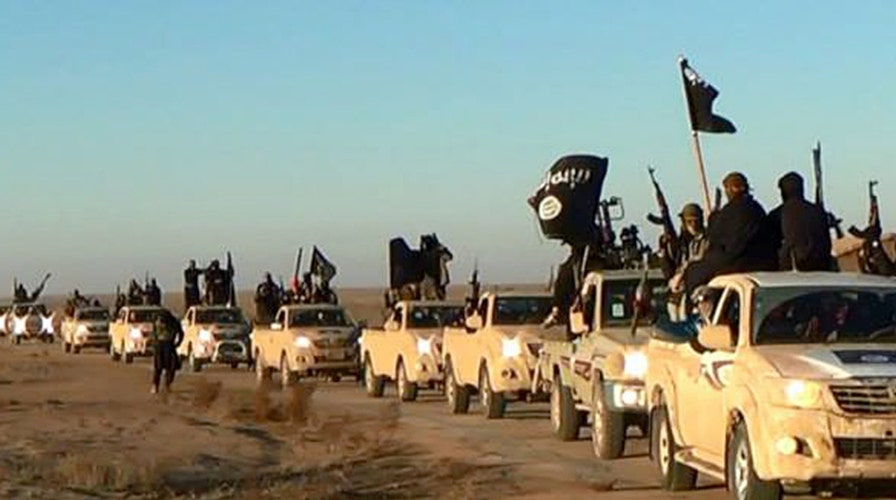FBI Director James Comey testified before Congress in 2014 that the thousands of Western foreign fighters bound for the Middle East would one day come home as battle-hardened extremists.
“There will be a terrorist diaspora out of those areas—especially Syria—that we all wake up every day thinking and worrying about,” he warned.
Two years later, the exodus has begun in earnest, and we are woefully unprepared to deal with it.
More than 6,000 Westerners, including Americans, have gone to fight with groups like ISIS in Syria and Iraq, and reportedly around 2,000 of them have returned—some to plot terrorist attacks and others to set up new extremist networks.
The reality could not be more clear: jihadists are coming home, and they are piggy-backing on the refugee flows to avoid detection.
We saw this in November with the Paris attacks, in January with a suicide bombing in Turkey against Western tourists, and in February when German authorities arrested two terror suspects for allegedly plotting an attack in Berlin.
In each of these cases, terrorists reportedly posed as Syrian refugees fleeing the war-torn country.
One international terrorism think tank has catalogued at least 40 suspected jihadists who have been caught entering Europe posing as migrants or refugees.
Indeed, the attempts are becoming so common that a top American NATO commander testified before Congress last week that terrorists and returning foreign fighters are becoming “a daily part of the refugee flow into Europe.” If that doesn’t set off alarm bells, then I don’t know what does.
This year it will only get easier for extremists to blend into the mix. The number of refugees and migrants arriving in Europe in just the past two months—more than 100,000—has already exceeded the entire first half of last year, according to UN figures.
But we cannot pretend the problem is an ocean away. For us, the danger is a plane-flight away, as extremists are trying to infiltrate U.S. humanitarian programs, too.
Intelligence officials have notified me that possible terror suspects in Syria have already tried to enter our country as refugees.
The concerted effort by ISIS to deploy operatives—using whatever routes possible—should come as no surprise. The group is dead set on ramping up external operations and has already been linked to 75 terrorist plots against the West, one-third targeting the United States.
ISIS members in their own words have threatened to take advantage of the Syrian refugee crisis to launch attacks, and they are clearly following through on it.
My committee will release a report next month on the issue of terrorist exploitation of refugee flows, marking the conclusion of a year-long review into the threat. The findings are concerning.
For instance, gaping security loopholes are making it easier for violent extremists to slip through the cracks—and possibly get closer to our homeland. Nowhere is this clearer than in Europe, where the continent’s open borders have become a “cause célebrè” for jihadists.
“There are no real controls,” one diplomat in the region explained to us, adding that authorities “take fingerprints, accept whatever identification they provide—if they have one—and send them on their way.” My Committee found many countries were not checking this information against counterterrorism databases.
This is inexcusable. If foreign governments are not rigorously screening refugees against terrorist watchlists, they will likely be overlooked, putting our allies at risk and allowing extremists to get one step closer to the United States.
We cannot adopt a wait-and-see approach while jihadists ride the wave of refugees into the West. We must act.
That is why this month the House Homeland Security Committee and House Foreign Affairs Committee will work to move bills through Congress to accelerate security cooperation with our overseas partners—especially on disrupting terrorist travel. The legislation would help our allies put better counterterrorism checks in place and focus U.S. assistance on the highest-risk countries.
We also need to strengthen our defenses here at home.
In November, the House voted on a bill I co-authored with Rep. Richard Hudson, R-N.C., the American SAFE Act, to enhance screening of Syrian and Iraqi refugees to weed out terror suspects. The legislation, which passed with a bipartisan veto-proof majority, does not shut the door on refugees; instead, it adds additional layers of security to the process for the highest-risk refugee categories.
Yet the president has pressured Democrats to stall this bill in the Senate. At a time when our enemies are targeting refugee routes to sneak into our country, I am worried that delay could be deadly.
Already this year two ISIS-linked Iraqi refugees were arrested in the United States on terror charges, one of which had reportedly returned from fighting in Syria.
Ultimately, the real security gap we must close is the leadership vacuum on the international stage. Hesitancy and half-measures have allowed Syria to become a jihadist powder keg, and lack of American leadership has encouraged Russia and Iran to fan the flames.
This is a humanitarian catastrophe, to be sure. But if we don’t get more assertive in resolving the crisis, it will be remembered for becoming a terrorist Trojan Horse.

